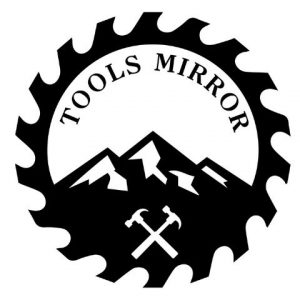Inverter generators are better for woodworking power tools due to their ability to produce clean and stable power. This ensures that delicate power tools, such as saws and sanders, are protected from power surges and voltage fluctuations, resulting in smoother and more accurate operation.
Think you’re planning to build your home in the middle of a woodland or up on the hill. In a home building project, you often need to use power tools for precise and fine finishing. But the main challenge would be the power supply.
You can manage it with a traditional generator. But again they can be loud, inefficient, and pose a risk to sensitive electronics. They will also destroy the calmness of the wood or hill, and the cacophonous sound will drown out your creative process.
That’s where ‘Inverter Generators’ the quire hero, come in. Inverter generators are quieter, more fuel-efficient, and produce a cleaner form of energy, making them an ideal choice for powering woodworking power tools.
In this blog post, we’ll explore why inverter generators are the unsung champions of woodworking, offering a harmonious blend of power and tranquility.
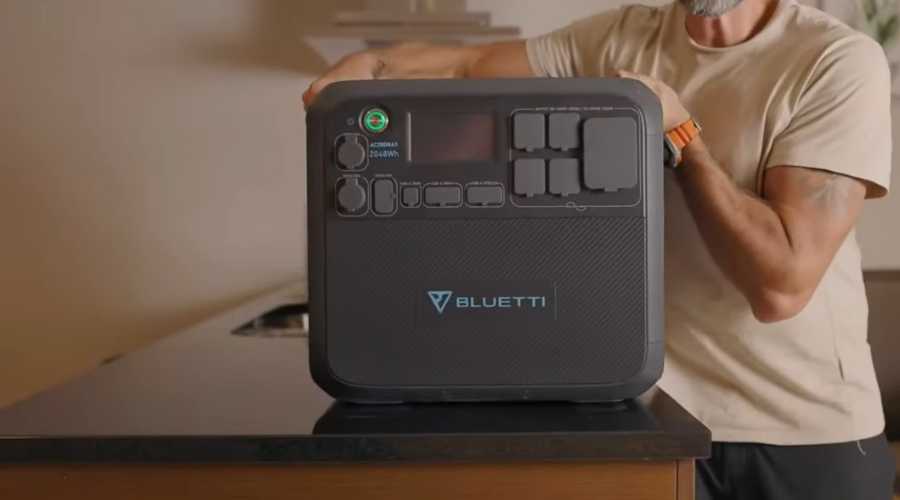
Understanding Inverter Generators
In the realm of power generation, inverter generators stand out as a modern marvel, and their distinction from traditional generators lies in their innovative design and capabilities.
At its core, an inverter generator is a compact and efficient powerhouse that serves the same fundamental purpose as a traditional generator – generating electricity. However, the key differentiation begins with the way they accomplish this task.
Let’s get a glimpse of traditional vs. inverter generators.
Traditional Generators:
These work on a simple yet robust principle: they use an internal combustion engine, typically fueled by gasoline, diesel, or propane, to turn a mechanical alternator, which generates electricity.
While traditional generators have been reliable sources of power for decades, they come with a set of inherent limitations.
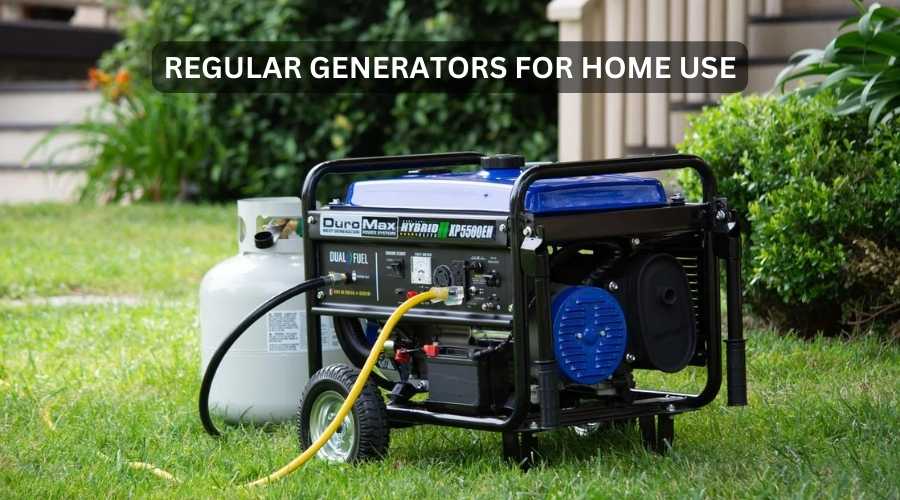
Inverter Generators:
In contrast, inverter generators employ a more sophisticated and technology-driven approach. They also use an internal combustion engine, but their secret weapon is inverter technology.
Here’s where the magic happens: the generator produces AC (alternating current) electricity, but this AC power is then converted into DC (direct current) and then inverted back into clean and stable AC power. This transformation process is managed by a microprocessor, which is the heart of the inverter generator.
This process might seem intricate, but the benefits it brings to the table are nothing short of remarkable.
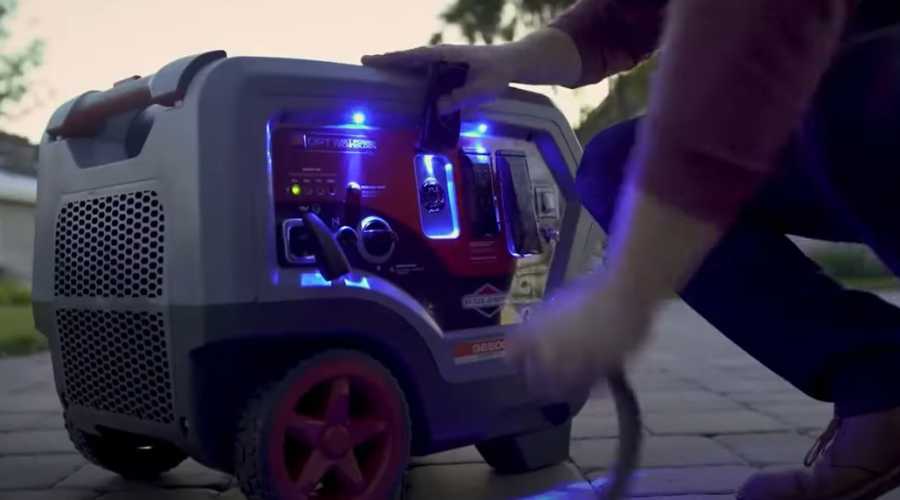
Benefits of Inverter Generators
When you have the option to choose between a generator or an inverter, later on, comes with plenty of benefits. Inverter generators are built with the latest technology and are ready to serve you clean and stable power.
Here we will discuss the benefits of inverter generators. Let’s start.
1. Portability and Size
Inverter generators are typically smaller and lighter than traditional generators, making them easy to transport and store. Their compact design makes them a preferred choice for camping trips, tailgating, and other on-the-go power needs.
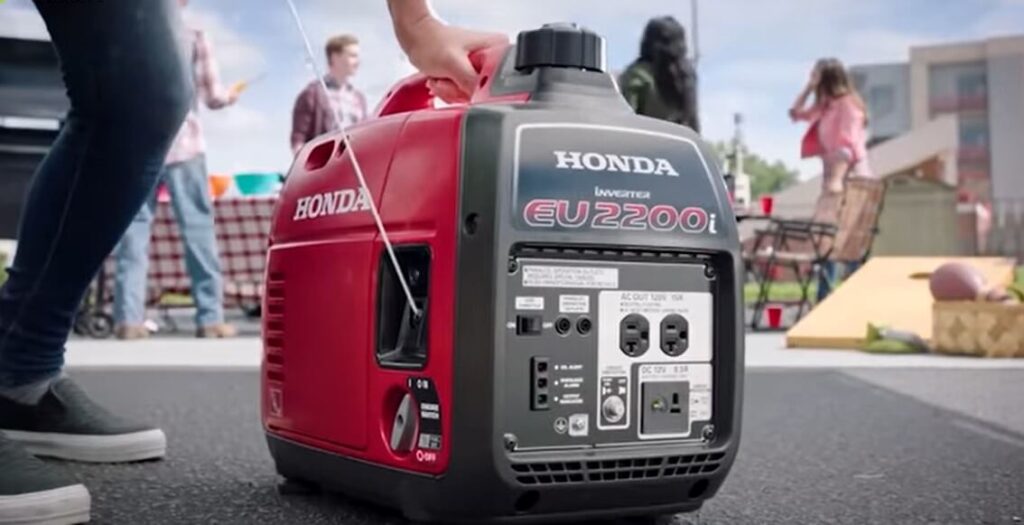
2. Clean and Stable Power Output
Inverter generators are adept at producing electricity with minimal fluctuations in voltage and frequency.
Traditional generators, on the other hand, tend to produce power with significant fluctuations, which can be harmful to sensitive electronic devices like laptops, smartphones, and power tools.
Inverter technology ensures that the electricity generated is clean, safe, and compatible with delicate electronics.
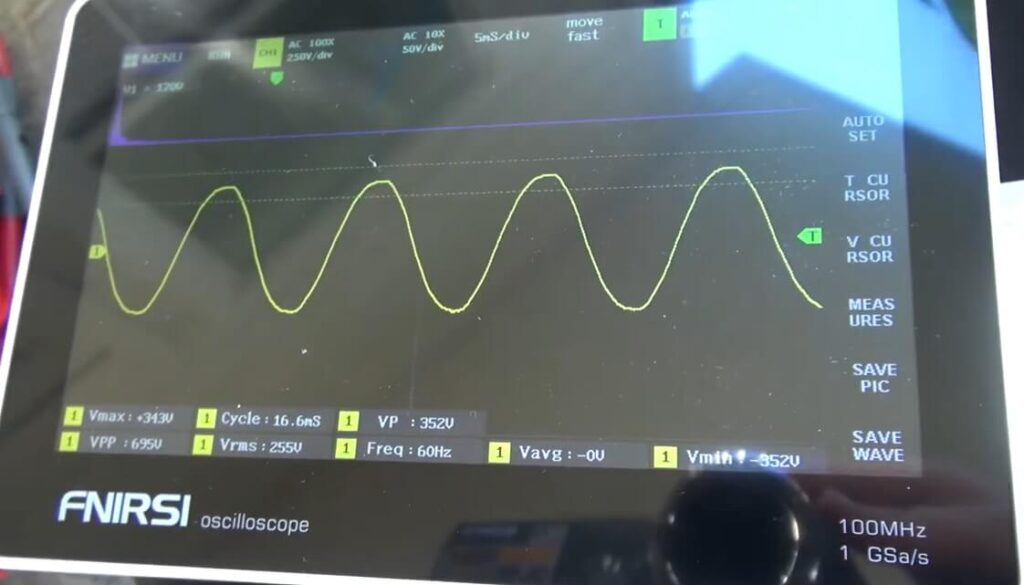
3. Fuel Efficiency
Inverter generators are renowned for their fuel efficiency. Unlike traditional generators that often run at a constant speed, inverter generators can adjust their engine speed according to the electrical load, optimizing fuel consumption.
For example, if a traditional generator consumes 1 gallon of fuel per hour, an inverter generator may only consume half a gallon for the same power output. This results in a 50% reduction in fuel costs and significant savings for the user.
This results in extended run times on a single tank of fuel and cost savings in the long run.
4. Noise Reduction
Inverter generators are engineered to operate at lower noise levels compared to traditional generators. This makes them more suitable for use in noise-sensitive environments, such as campgrounds, residential areas, or outdoor events.
Inverter generators are designed with advanced electronic circuitry, which enables them to produce only the amount of power needed to meet the demand. This means that the engine does not have to run at full capacity all the time, resulting in less noise and fuel consumption.
In addition, inverter generators are equipped with sound-dampening materials and mufflers, further reducing the noise level.
5. Parallel Capability
Besides producing clean and stable power, inverter generators have the ability to be linked in parallel to increase power output. This feature can be useful in various situations, such as when additional power is needed for larger appliances or equipment.
For example, when camping or tailgating, multiple inverter generators can be linked together to power air conditioning units or larger speakers.
In addition, inverter generators linked in parallel can be used as a backup power source during a power outage, connecting multiple woodworking power tools, or tackling an emergency situation.
As a result of the flexibility and simplicity of increasing power production, you can avoid the requirement for a larger generator too.

Finally, we can say that inverter generators revolutionize the way we generate power by harnessing advanced inverter technology to deliver clean, efficient, and portable electricity.
Understanding the principles behind inverter technology sheds light on why these generators are the preferred choice for a wide range of applications, from woodworking and camping to home backup power.
What Are The Cons Of An Inverter Generator?
The Inverter generators, without doubt, are highly efficient and reliable power sources, but they come with a few disadvantages that should be considered while making a decision.
Some of the cons of inverter generators include:
- Higher cost compared to traditional generators
- Limited power output, typically ranging from 1000 to 7000 watts, is not suitable for high-demand applications or industrial use
- Smaller fuel tank capacity, leading to shorter run times
- More complex and delicate internal components, make them more difficult to repair
- Limited availability of repair services and replacement parts
- Can be louder at higher power output levels
Despite these cons, inverter generators are still a popular choice for those who prioritize quiet operation, fuel efficiency, and clean power output. It ultimately comes down to personal preference and specific power needs.
Use Cases and Applications Of Inverter Generators
Inverter generators are versatile power sources that find application in a myriad of scenarios due to their unique combination of benefits.
Let’s explore some of the key use cases and applications where inverter generators truly shine:
Camping and Outdoor Adventures:
- Inverter generators are the go-to choice for campers, hikers, and outdoor enthusiasts. Their compact size and quiet operation ensure they don’t disrupt the serenity of the great outdoors.
- They provide reliable power for camping essentials such as lighting, cooking appliances, and charging devices, all without disturbing the peace of the natural surroundings.

Recreational Vehicles (RVs) and Boating:
- Inverter generators are indispensable for RV owners and boaters who want to enjoy modern conveniences while off the grid. Their ability to provide clean and stable power ensures that sensitive electronics in RVs and boats remain protected.
- They enable the operation of air conditioning units, microwaves, televisions, and other appliances on RVs and boats, enhancing comfort during trips.
Home Backup Power:
- Inverter generators offer a reliable solution for home backup power during outages. Their clean power output is safe for sensitive electronics, making them suitable for powering essential appliances like refrigerators, sump pumps, and medical equipment.
- Their fuel efficiency ensures extended run times, providing peace of mind during prolonged power interruptions.
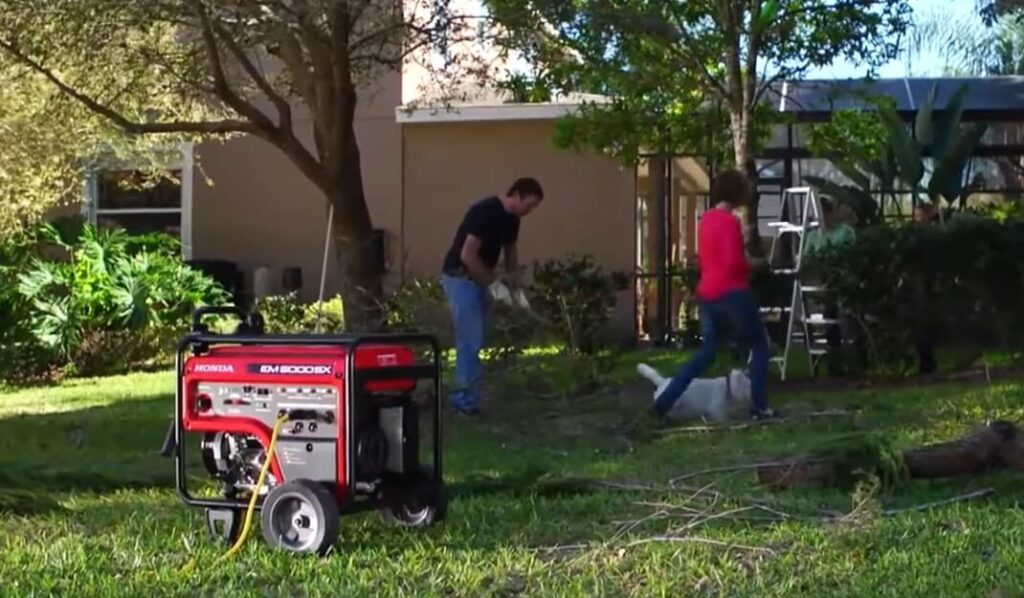
Construction Sites:
- Inverter generators are becoming increasingly popular on construction sites due to their portability and efficiency. They power tools and equipment while keeping noise levels down, which is essential in urban construction areas with noise regulations.
- Contractors appreciate their ability to provide a stable power supply for sensitive construction equipment and devices.
Tailgating and Outdoor Events:
- Inverter generators are a favorite among sports fans and event enthusiasts for tailgating and outdoor gatherings. Their quiet operation allows for a more enjoyable and social atmosphere.
- They power everything from grills and speakers to TVs and mini-fridges, enhancing the overall experience.
Emergency Response and Disaster Relief:
- Inverter generators play a crucial role in disaster relief efforts. Their mobility and efficiency make them ideal for providing emergency power in disaster-stricken areas.
- They can charge communication devices, run medical equipment, and provide power for essential services during emergencies.
DIY Projects and Woodworking:
- Inverter generators are invaluable for DIY enthusiasts and woodworkers operating power tools. The stable power output ensures precise and consistent performance of tools, enhancing the quality of work.
- Their compact size and noise reduction features make them suitable for home workshops and garage-based projects.

In summary, inverter generators have evolved to meet the diverse power needs of modern life. Whether you’re camping in the wilderness, navigating the open waters, or simply preparing for unexpected power outages at home, these generators offer a reliable and versatile source of clean and quiet electricity.
Their adaptability to various applications makes them an indispensable tool for a wide range of users, from outdoor adventurers to professionals in various industries.
Are Inverter Generators Better than Regular Generators?
From the above discussion, it is clear why are inverter generators better than their traditional counterparts. In terms of portability, energy efficiency, noise reduction, and so on, inverter generators are unparalleled to other generators.
In an inverter generator, you can regulate the power output, which will give you a fuel-efficient, stable, and reliable power source of electricity. Which is awe-inspiring.
For your better understanding, we will discuss the whole thing in a table form to prove the superiority of inverter generators vs generators.
Here’s a comparison table highlighting the key differences between inverter generators and traditional generators:
| Aspect | Inverter Generators | Traditional Generators |
|---|---|---|
| Power Output | Clean and stable electricity with minimal fluctuations, suitable for sensitive electronics. | May have voltage and frequency fluctuations, less suitable for sensitive electronics. |
| Noise Levels | Operate quietly, with noise levels significantly lower than traditional generators. | Tend to be noisier due to constant engine speed. |
| Fuel Efficiency | More fuel-efficient, adjusting engine speed based on the load, resulting in longer run times. | Less fuel-efficient as they often run at a constant speed, leading to higher fuel consumption. |
| Portability | Compact and lightweight, making them easy to transport and store. | Bulkier and heavier, making them less portable. |
| Parallel Capability | Some models offer parallel capability for increased power output. | Limited or no parallel capability. |
| Applications | Versatile, suitable for camping, RVs, home backup power, and sensitive electronic devices. | Commonly used for construction sites, industrial settings, and backup power with less regard for sensitive electronics. |
| Maintenance | Typically requires less maintenance due to efficient operation. | May require more frequent maintenance due to constant engine speed. |
| Initial Cost | Often costs more upfront but provides long-term savings through fuel efficiency. | The initial cost is lower but may incur higher fuel costs over time. |
| Environmental Impact | Environmentally friendly with reduced emissions and fuel consumption. | Higher emissions and fuel consumption, potentially less eco-friendly. |
| Start-Up Time | Nearly instant power with quick start-up times. | Slightly longer start-up times as engines need to reach a stable operating speed. |
In the above table, we tried to provide a concise overview of the main differences between inverter generators and traditional generators.
We hope it will help you to make an informed choice based on your specific needs and priorities.
Are Inverter Generators Better For Woodworking Projects?
Yes, inverter generators are an excellent choice for woodworking projects. Their clean power output ensures precision and quality in woodworking tools, making them ideal for tasks such as:
Cabinet Making: Inverter generators power table saws, routers, and sanders, allowing woodworkers to create precise and beautifully finished cabinets.
Furniture Crafting: Woodworkers can rely on inverter generators to operate tools like planers, jointers, and drills with consistent accuracy for crafting furniture pieces.
Trim Work: For fine trim work and molding, inverter generators deliver the clean power needed for precision cuts and shaping using miter saws and trim routers.
On-Site Woodworking: Inverter generators are portable, making them suitable for on-site woodworking, such as framing or custom installations, where access to a traditional power source may be limited.
In summary, inverter generators excel in woodworking by providing clean, stable power, ensuring that intricate woodworking projects are executed with precision and efficiency.
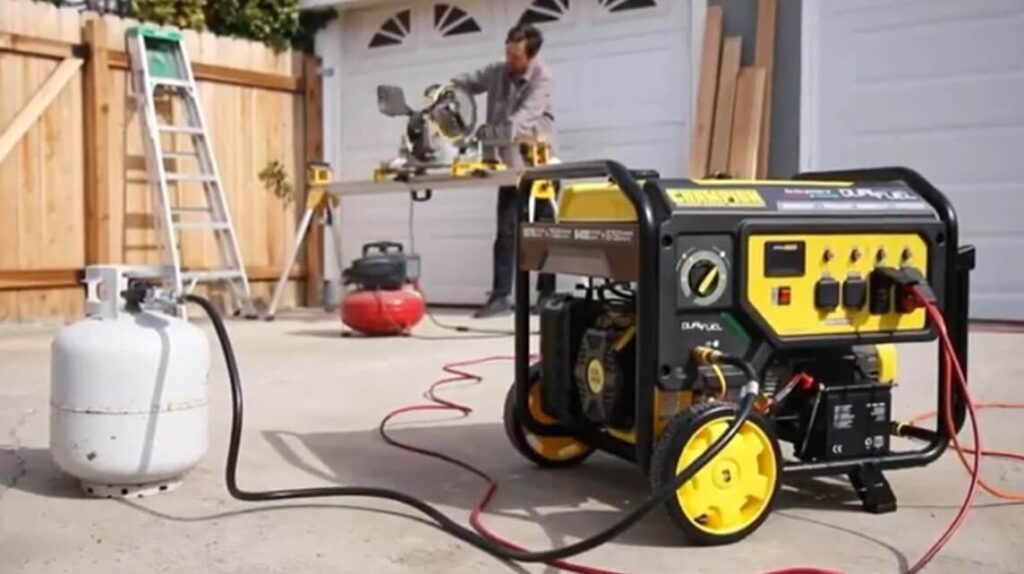
Are Inverter Generators Pure Sine Wave?
Inverter generators typically produce a near-pure sine wave output. While they aim to create a waveform that closely resembles a pure sine wave, it may not be perfect. The output is generally considered “clean” and suitable for most sensitive electronics and appliances.
The reason for this near-pure sine wave output is the use of advanced inverter technology, which involves converting the initial AC power into DC and then inverting it back into AC power.
This process, managed by a microprocessor, results in a waveform that closely mimics a pure sine wave. However, there may still be some minor harmonic distortion or imperfections in the waveform.
For most practical purposes, the quality of power provided by inverter generators is sufficient and safe for sensitive electronics, including laptops, smartphones, and power tools.
However, if you have extremely sensitive equipment or specialized requirements, it’s advisable to check the specific waveform characteristics of the inverter generator in question to ensure compatibility.
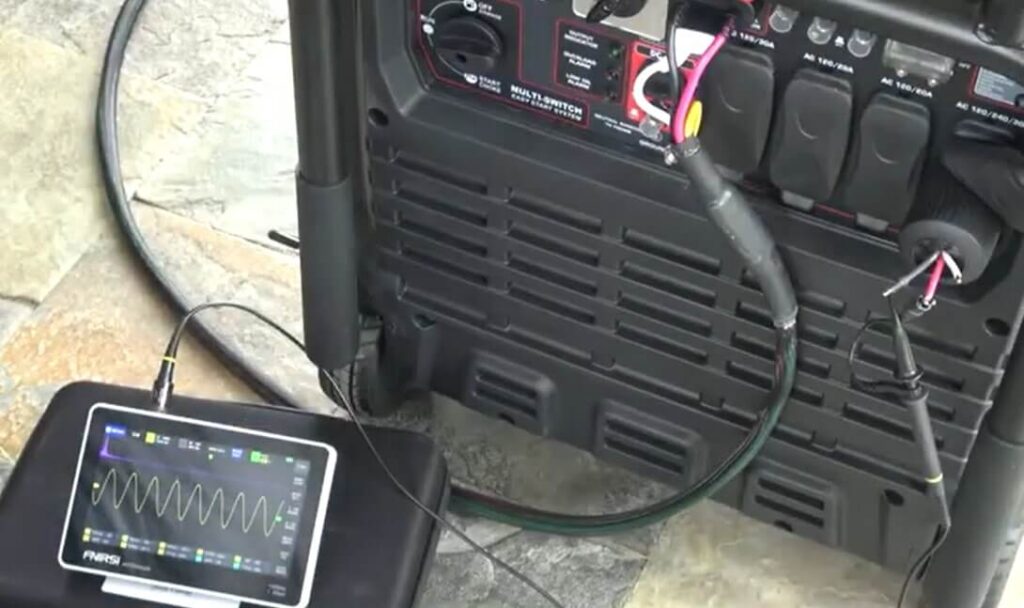
Are Inverter Generators Reliable?
Inverter generators have gained popularity in recent years due to their increased efficiency and portability. However, the question of their reliability still remains.
Inverter generators are designed to produce clean power, which is beneficial for sensitive electronics like laptops and smartphones. They are also fuel-efficient and quieter than traditional generators.
While there have been some reports of inverter generators failing, it should be noted that proper maintenance and usage can greatly increase their reliability. It is important to choose a reputable brand and follow the manufacturer’s instructions for maintenance and operation.
Overall, inverter generators can be reliable sources of power when used correctly.
Are Inverter Generators Really Necessary?
Inverter generators are an excellent option for those who need portable power or backup power sources. They are lightweight, compact, and produce clean energy.
In comparison to traditional generators, inverter generators are much quieter and more fuel-efficient.
Inverter generators are equipped with advanced technology that allows them to produce stable, clean power, making them ideal for sensitive electronics such as laptops and smartphones.
Though they tend to be more expensive than conventional generators, their benefits far outweigh their costs.
For those who require reliable, portable power, an inverter generator is highly recommended.
What’s the DIFFERENCE between an INVERTER GENERATOR and a regular generator?
FAQs: Why Are Inverter Generators Better?
What is an inverter generator, and how does it differ from a traditional generator?
An inverter generator is a compact power source that converts AC electricity into DC and then back to clean and stable AC power. It differs from traditional generators by its ability to produce electricity with minimal voltage and frequency fluctuations, making it ideal for sensitive electronics.
Why are inverter generators quieter than traditional generators?
Inverter generators are quieter because they adjust their engine speed based on the electrical load, operating at lower RPMs during lighter usage. This noise reduction feature ensures a more peaceful and comfortable environment.
Are inverter generators more fuel-efficient than traditional generators?
Yes, inverter generators are more fuel-efficient. They can vary their engine speed according to the load, optimizing fuel consumption. This results in longer run times on a single tank of fuel compared to traditional generators.
Can inverter generators power sensitive electronics safely?
Absolutely. Inverter generators produce clean and stable electricity with minimal voltage spikes and fluctuations. They are safe for sensitive electronics like laptops, smartphones, and medical devices, ensuring their proper operation without the risk of damage.
What are the typical applications of inverter generators?
Inverter generators are versatile and find applications in camping, RVs, boating, home backup power, construction sites, tailgating, and woodworking. Their clean power, portability, and efficiency make them suitable for a wide range of scenarios and power needs.
Conclusion
In conclusion, inverter generators emerge as the modern solution that harmonizes power, precision, and peace. Their clean electricity, whisper-quiet operation, fuel efficiency, and adaptability shine in various applications, from safeguarding your home to elevating your woodworking endeavors.
As innovation paves the way, inverter generators stand as a testament to progress, ensuring that your power needs are met without compromise.
Recent Posts
Woodworking in 2025 is all about efficiency, precision, and smart technology. Whether you're a beginner or a seasoned craftsman, having the right tools can make all the difference. Here are the top 7...
Ever tried drilling into a piece of wood only to end up with a splintered mess or a wobbly hole? Yeah, it's more common than you think. Wood might seem like an easy material to work with, but...
